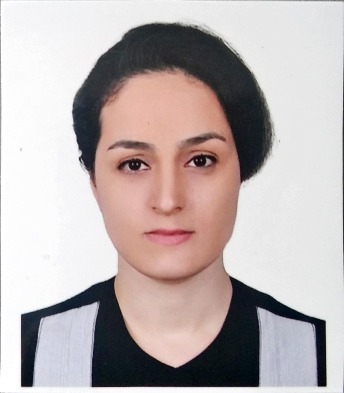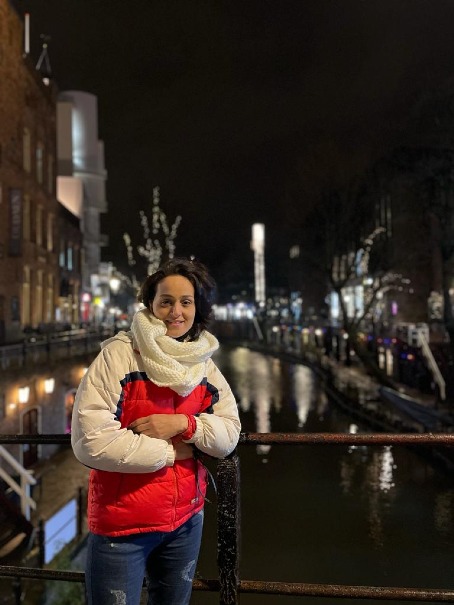PhD Grant winner Nafiseh Orouji on using films to empower women’s rights globally
|

Interview by: Marco in 't Veldt
I’m currently a PhD student at the Faculty of Arts at the University of Groningen, where I’m researching the effects of audiovisual media on promoting women’s sexual and reproductive health and rights (SRHR). I just did that pre-master because I wanted to communicate with scholars and I wanted to be in that environment in the community of the University. In Groningen I met Dr. Janina Wildfeuer. We discussed research, and now I'm a self-funded PhD student and she is my supervisor.
I come from Iran, where women’s rights are not always respected. My interest in multimodal analysis and the power of films to change attitudes and behaviors led me to choose this direction for my doctoral research.
What inspired you to start this research specifically?
From my own experiences. I daily see how women face challenges and restrictions, and I wanted to do something that could contribute to their empowerment. And I’ve always been fascinated by films and their ability to evoke emotions and influence thought processes. My master’s project, which focused on multimodality in films, was an important step in this direction. It provided me with the foundation to explore how various film techniques are combined to convey powerful messages.
Your research focuses on the role of films in changing attitudes towards women’s rights. Can you tell us more about the method you use?
My research involves analyzing a corpus of fifty feature films that address women’s rights, particularly their sexual and reproductive health. I select specific scenes relevant to my research. I then conduct a multimodal argumentative analysis to examine how different expressive forms, like sound, images, lighting, dialogues, camera techniques, etc., are used to express the filmmakers’ standpoints and arguments to convey their message. Additionally, I involve participants in my study. They watch the selected scenes and complete questionnaires before and after viewing to measure how their attitudes and behaviors towards women’s rights might change. I also plan a follow-up six months after viewing the films to assess the sustainability of these changes.
Your research is clearly interdisciplinary. Can you tell us something about how the different disciplines within your research collaborate?
My research indeed lies at the intersection of multiple disciplines, including multimodal analysis, argumentation theory, and psychology. The collaboration between these fields is essential to the success of my research. My first supervisor, Dr. Janina Wildfeuer, specializes in multimodality and argumentation, while my second supervisor, Dr. Pelin Gul, has a background in psychology. By combining their expertise, I can develop an in-depth understanding of both the technical aspects of film and their psychological impact on viewers.
How do you expect your research will contribute to the UN’s Sustainable Development Goals?
The Sustainable Development Goals, particularly those related to gender equality and women’s health, are closely tied to my research. My project examines how cultural products, such as films, can contribute to fostering a society where women’s rights are recognized as human rights. By gaining insight into how films can be used to change attitudes and behaviors towards Sexual and Reproductive Health and Rights (SRHR), I hope to contribute to achieving these goals. This is not only important for the empowerment of women but also for the broader sustainable development of societies worldwide.
Normally we don't ask people I interview to the personal situation because this is private. But you live in Iran and Iran isn't famous for its women's rights. How does that affect your position?

Yes, of course, you know, if I want to travel, for example abroad, I need the permission of my husband. This is something that is the case in Iran. Luckily my husband is a really supportive person and he doesn't have any problem with it. I’m free to do my research, but if authorities knew what I was doing, there might be questions. For now, it’s not public, but there could be consequences after I finish my thesis.
I'm not an activist. I'm really interested in human issues. I think that there will definitely be some changes in the people's attitudes and behaviors towards women's right after watching the films, because there have been some other studies on other topics - not women - that have studied the attitudes of people before and after watching the films about a specific topic.
I hope that my research can contribute to promoting gender equality and strengthening women’s rights, not only in Iran but globally. By demonstrating how films can be effectively used to raise awareness and change attitudes, I want to provide humanitarian organizations and policymakers with insights that can help them develop powerful educational tools.
| Last modified: | 05 September 2024 5.45 p.m. |
More news
-
10 June 2024
Swarming around a skyscraper
Every two weeks, UG Makers puts the spotlight on a researcher who has created something tangible, ranging from homemade measuring equipment for academic research to small or larger products that can change our daily lives. That is how UG...
-
21 May 2024
Results of 2024 University elections
The votes have been counted and the results of the University elections are in!

